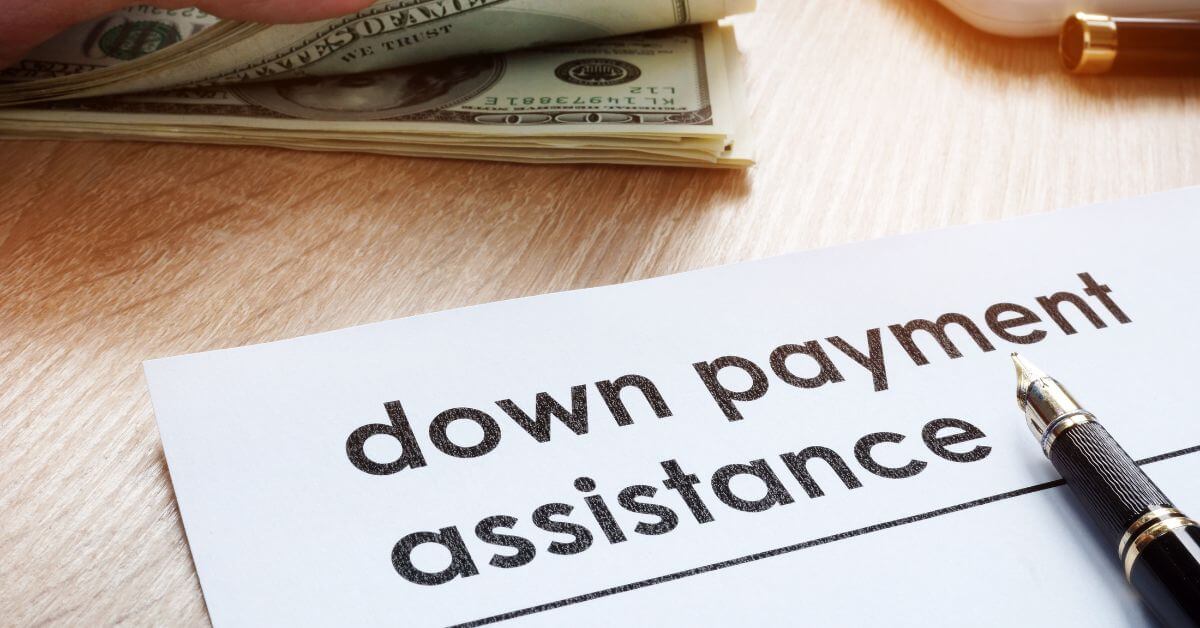Down payments can be outright intimidating.
It involves dishing out huge sums of cash that, of course, you probably had other use for.
Depending on the type of loan, even the requirements can be just as intimidating. For some, not being able to pay a down payment can quickly exclude you from homeownership altogether.
So it’s very important to understand just how much down payment is expected from you when applying for a mortgage loan.
For FHA loanees, we discuss in this article everything you need to know about the down payment requirements and offer alternatives if you find that you don’t have enough money in the bank today.
Quick Overview of the FHA Loan
The Federal Housing Administration (FHA) loan is a popular mortgage option for first-time homebuyers and those with less-than-perfect credit. It comes with a set of requirements that determine your eligibility and how much you qualify for.
As a government-backed loan, it’s also designed to make homeownership more accessible and affordable. Thus, lenders are more willing to offer loans to borrowers who may not qualify for conventional mortgages due to lower credit scores or limited funds for a down payment.
FHA loans offer lower down payments, and more lenient credit requirements, and often have lower interest rates than conventional loans.
What is the Down Payment Requirement for FHA Loans?
The down payment that will be required from you is heavily tied to your credit score and is in two parts.
Credit Score – 580 or Higher
The minimum down payment required if you have a credit score of 580 or higher is 3.5% of the purchase price of the home.
For example, if you’re buying a house worth $200,000, your down payment would be $7,000 (3.5% x $200,000).
However, keep in mind that this is just the minimum requirement and some lenders may require a higher down payment depending on your credit score and other factors.
Credit Score – 500 – 579
The minimum down payment required if you have a credit score between 500 and 579 is usually 10% of the purchase price of the home.
For example, if you’re buying a house worth $200,000, your down payment would be $20,000 (10% x $200,000).
If you find that you don’t have enough money saved up for the required down payment based on your credit score, all hope is not lost. There are alternatives available to help you cover that cost.
FHA Down Payment Assistance Alternatives

If you find that you do not have enough money saved up for your down payment, don’t count yourself out of the homeowners club. There are a number of options available to help you pay your down payment.
Down Payment Assitance Programs
Down payment assistance programs can be helpful if you are struggling to come up with the cash needed for a down payment.
Here are some examples of FHA down payment assistance programs that can provide grants, loans, or other types of assistance to help cover all or part of your down payment and/or closing costs:
- FHA Down Payment Assistance Grants: This program provides eligible borrowers with up to 2% of the home’s purchase price in the form of a grant that does not need to be repaid. These grants can be used for both the down payment and closing costs.
- Good Neighbor Next Door Program: This program is available to law enforcement officers, firefighters, emergency medical technicians, and teachers who are purchasing homes in designated revitalization areas. If you qualify, you can receive a discount of up to 50% off the home’s purchase price, which can help reduce the amount needed for a down payment.
- Native American Homeownership Initiative: This program provides down payment assistance to Native American tribes and their members who are purchasing homes on tribal land. The amount of assistance varies depending on the tribe and the borrower’s financial situation.
- Community Homeownership Incentive Program: This program provides eligible borrowers with a forgivable loan of up to 20% of the home’s purchase price, which can be used for the down payment and closing costs. The loan is forgiven after a certain number of years if the borrower continues to live in the home.
- Homeownership Across Texas: This program provides eligible borrowers with a low-interest loan to cover down payment and closing costs. The loan is available in conjunction with an FHA, VA, USDA, or conventional loan.
It’s important to note that each down payment assistance program has its own eligibility requirements and restrictions, and not all programs may be available in every area.
Additionally, some programs may have income limits or other restrictions that can impact your eligibility.
Gift Funds
Another great option is for people close to you to gift you the funds for your down payment.
However, not just anyone can give you this gift. The FHA has guidelines that specify who in your life can give you gift funds.
Here are the eligible donors:
- Family members: Gift funds can come from a spouse, domestic partner, parent, grandparent, or legal guardian. The donor must provide documentation showing their relationship with you.
- Friends: Friends who have a long-standing relationship with you can also be donors. However, they must provide documentation of their relationship with you.
- Employer: Gift funds can come from an employer or labor union, as long as the employer is not a party to the transaction and the funds are not a disguised form of compensation.
- Charitable organizations: You may also receive a gift fund from any charitable organization that meets FHA guidelines. However, you must provide documentation showing that the organization is a qualified nonprofit.
- Government agencies: Finally, gift funds can come from a government agency that provides homeownership assistance. Again, you must provide documentation showing that the agency is an eligible donor.
The donor must provide a gift letter declaring that they do not have any expectation of the gift being repaid, and documentation showing the transfer of funds to the borrower’s account. Additionally, the gift funds must also be “seasoned” in the borrower’s account for at least 60 days prior to closing.
If you have someone who qualifies as a donor and is willing to generously gift you with the funds for a down payment, this could be perfect.
Homebuyer Tax Credits
Some states offer homebuyer tax credits that can be used to offset your down payment or closing costs. These credits are typically only available to first-time homebuyers and have specific eligibility requirements.
Ask your local lender about the availability of these credits in your state and if you qualify for them. If you’re looking to get a house in any of these locations, then just reach out to us and we’ll walk you through everything.
Seller Concessions
Another option to consider is asking the seller to contribute to your closing costs, which can help reduce the amount of cash you need to bring to the table.
The seller can contribute up to 6% of the home’s purchase price toward your closing costs but cannot contribute to your down payment.
Hopefully, the savings you make in your closing costs will be enough to help cover your down payment costs.
Are FHA Loans Always 3.5% down?

No, the minimum down payment amount for an FHA loan is 3.5% of the sale price, but that percentage can increase based on your credit score and lender.
If your credit score is below 580, you should expect a down payment of around 10%.
If you have a credit score of 580 or above, try and negotiate with your lender to get the minimum 3.5% down payment rate.
Note that FHA refinancing loans require no down payments.
Do You Have to Put 20% Down on an FHA loan?
If you applied for a conventional loan, you may find yourself needing to pay a down deposit as high as 20%, which is unrealistic for many.
Thankfully, FHA loans offer lower down payment requirements to make homeownership more accessible. With an FHA loan, your down payment requirement can be as low as 3.5%.
Your lender will decide on the down payment amount based on your credit score, DTI, and other factors. If you apply for an FHA 203k loan, the down payment may also be higher depending on the amount of repair work to be done.
How Much Do I Need to Make to buy a $300k house with an FHA loan?
To buy a $300k house with an FHA loan, you must first consider your down payment, credit score, debt-to-income ratio, and other expenses.
Assuming you make the minimum down payment of 3.5%, or $10,500 (3.5% x 300,000), your loan amount would be $289,500.
FHA loans typically have a maximum debt-to-income ratio of 43%, meaning your monthly housing expenses (mortgage payment, property taxes, and insurance) cannot exceed 43% of your monthly income.
To get an estimate of how much you would need to make to qualify for this loan, you can use a mortgage affordability calculator. Assuming a 4% interest rate, 30-year term, and property tax rate of 1.25%, your estimated monthly mortgage payment would be around $1,444.
To keep your monthly housing expenses within the 43% debt-to-income ratio, you would need to make at least $3,355 per month, or $40,260 per year, before taxes.
Note that this is just an estimate, and you should consult with a lender to get a more accurate assessment of your ability to qualify for an FHA loan based on your specific financial situation.
What is an Acceptable Down Payment on an FHA Loan?
There isn’t an exact answer to this question. While the minimum down payment amount is 3.5% of the sale price, you may be required to pay a down payment much higher than that.
Your financial standing and financial history will play a big part in the down payment a lender asks for.
It’s important to remember that your down payment can be slightly negotiated, so try and get the best deal that you can.
If you still can’t afford the down payment requested, use the alternatives available to you.
Alternatively, you can call us and we’d help you navigate your way around your first-time homeownership journey with the best loan options tailored uniquely for you.






